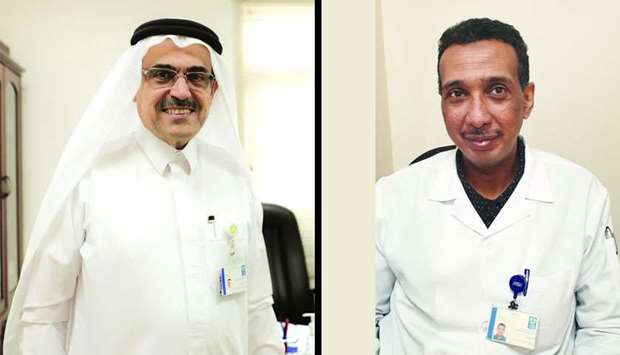Thalassemia, an inherited blood disorder characterised by abnormal hemoglobin production, is the focus of a public awareness campaign at the National Center for Cancer Care and Research (NCCCR), Hamad Medical Corporation (HMC) next week.
Dr Ussama al-Homsi, chairman, Medical Oncology and Hematology, NCCCR, said the campaign aims to highlight the significance of premarital screening for genetic blood disorders like thalassemia and the importance of blood donation in ensuring a safe blood supply to care for patients with thalassemia.
“Thalassemia is an inherited disorder affecting the blood cells resulting in the production of either no or too little hemoglobin, which is used by red blood cells to carry oxygen around the body. The lack of hemoglobin results in reduced oxygen supply to every cell in the body. Thalassemia is also known as Mediterranean anaemia as it mainly affects people living in the Mediterranean region,” said Dr al-Homsi.
“We offer a full range of services to care for all patients, including those with thalassemia. Our experts focus on diagnosing and treating hematological malignancies as well as other blood disorders. We work collaboratively with our colleagues and partners to ensure our patients receive the right care,” added Dr al-Homsi.
The hematology care team at NCCCR, in collaboration with HMC Patient and Family Education Department will raise awareness of the causes and symptoms of the disorder as well as the treatment options.
“Our awareness activities focus on simple steps that can be implemented to reduce the condition’s potentially devastating effects and improve the quality of life for thalassemia patients. One of our top priorities is to ensure people are aware of thalassemia and are able to recognise its symptoms as early as possible,” said Dr Mohammed Yassin, consultant, Hematology Department, NCCCR.
There are four main types of thalassemia - alpha, beta, delta, and a combination of the three.
Dr Yassin says the impact of thalassemia can range from mild to severe and life-threatening. Symptoms of thalassemia can include fatigue, weakness, pale or yellowish skin, facial bone deformities, slow growth, abdominal swelling, and dark urine.
“Thalassemia is an inherited disorder affecting the blood cells resulting in the production of either no or too little hemoglobin, which is used by red blood cells to carry oxygen around the body. The lack of hemoglobin results in reduced oxygen supply to every cell in the body. Thalassemia is also known as Mediterranean anaemia as it mainly affects people living in the Mediterranean region,” said Dr al-Homsi.
“We offer a full range of services to care for all patients, including those with thalassemia. Our experts focus on diagnosing and treating hematological malignancies as well as other blood disorders. We work collaboratively with our colleagues and partners to ensure our patients receive the right care,” added Dr al-Homsi.
The hematology care team at NCCCR, in collaboration with HMC Patient and Family Education Department will raise awareness of the causes and symptoms of the disorder as well as the treatment options.
“Our awareness activities focus on simple steps that can be implemented to reduce the condition’s potentially devastating effects and improve the quality of life for thalassemia patients. One of our top priorities is to ensure people are aware of thalassemia and are able to recognise its symptoms as early as possible,” said Dr Mohammed Yassin, consultant, Hematology Department, NCCCR.
There are four main types of thalassemia - alpha, beta, delta, and a combination of the three.
Dr Yassin says the impact of thalassemia can range from mild to severe and life-threatening. Symptoms of thalassemia can include fatigue, weakness, pale or yellowish skin, facial bone deformities, slow growth, abdominal swelling, and dark urine.

